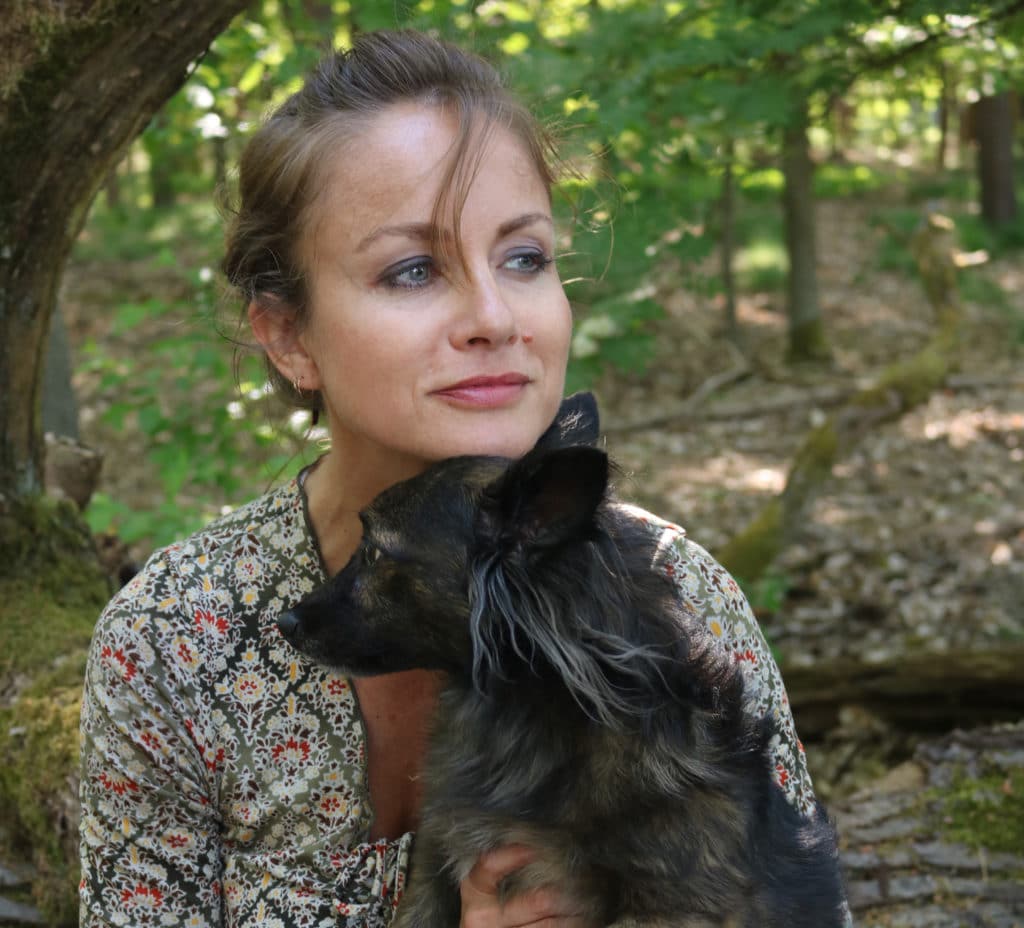 Who better than the Book Doula to give the world the ultimate reading list for Fixing the Future Festival, our celebration of creative ideas and world-changing solutions?
Who better than the Book Doula to give the world the ultimate reading list for Fixing the Future Festival, our celebration of creative ideas and world-changing solutions?
Ariane Conrad, aka the Book Doula, supports leaders, visionaries and changemakers in creating groundbreaking books, among them 4 New York Times bestsellers. Her latest feat The Deeper the Roots by Stockton Mayor Michael Tubbs is out in November 2021.
Check out her future-fixing reading list below for “huggable books,” “moments of discomfort,” and “the freshest air you can breathe.”
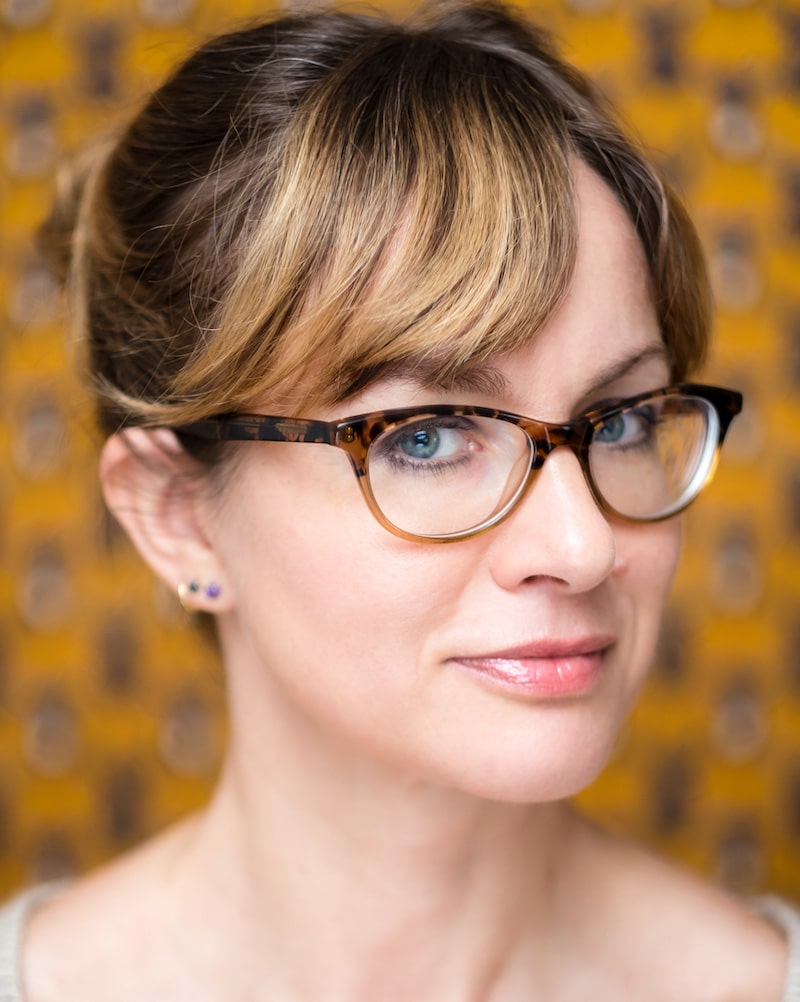
Ariane knows how to get you unstuck. Photo: Dan Taylor
Ariane Conrad:
I read a lot of books in my line of work. Like several hundred per year. At this point I am completely uninterested in books about What’s Wrong/the Problem(s) We Face. But I am also increasingly less excited about books pitching specific solutions or models (even when I completely believe in the validity of that model, whether we’re talking Universal Basic Income, mycoremediation, somatic abolitionism, etc.).
What I currently find most thrilling are books that feel like cracks through which I can glimpse an alternative reality. It’s no coincidence they’re usually not written by white men, who are so comparatively comfortable in this reality that they are seldom incentivized to explore or build another.
Here are a few favorites:
These Wilds Beyond Our Fences, Bayo Akomolafe
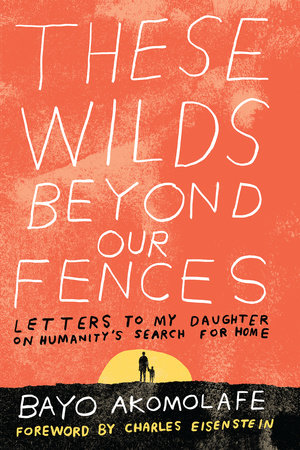
You might have seen this provocative Nigerian-born philosopher popping up in circles around topics as varied as climate, racial justice, masculinity, and trauma. Bayo doesn’t offer solutions: instead he encourages “queered,” “awkward” approaches, decentering humans, unraveling, grieving, fugitivity, sanctuary, hibernation, and ultimately, questioning almost everything we think is the right way to achieve a “better world.” If this sounds like a frustrating place to land, it is!, but it also feels like the freshest air you can breathe, like true liberation.
Bayo’s writing is difficult even for native English speakers, so be forewarned, especially non-native speakers. A taste of it:
“Dislocation is what ‘Euro-American modernity’ produces in abundance. An ironic observation—since the stamp and force of modernity is an assertion of humanity’s place in the world. The irony lies in the fact that in emphasizing permanence—that is, in striving to push back against the corroding and destabilizing effects of dust, and in striving to rise above the finiteness of matter, modernity escalates our being out-of-place….As our fences grew (pretending to enclose within them a circle of anthropocentric agency, and distancing the wilds beyond them, where dragons and beasts and mindless weeds sprout like an uncontrollable plague), the promise of arriving at a universal, totalizing, and complete knowledge of the world keeps a steady pace. With science and its supposed abilities to mirror unvarnished truth, the war is supposedly being won. We are getting ‘better.’…”
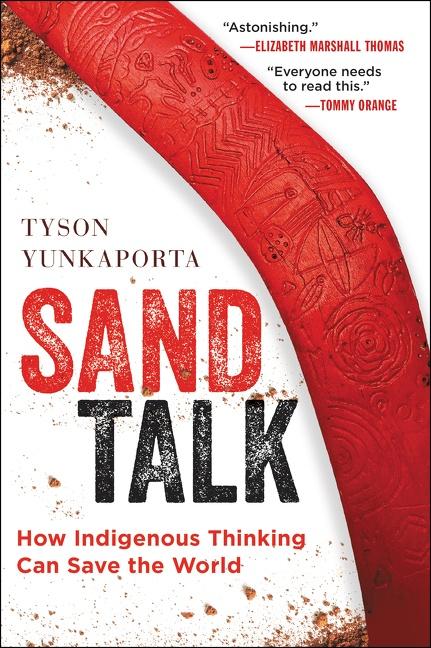
Reading this book is the closest thing we Orphans (which is a way to say “non-indigenous” that I take from Stephen Jenkinson, whose book I’ll discuss in a moment) have to experiencing an Aboriginal worldview. Through that lens the book examines all sorts of arenas (family and community, justice and law, knowledge, development/progress, gender, etc).
Tyson is funny, humble, and sharp, in the sense of intelligent but also: like an acupuncture needle, providing moments of discomfort, especially for us white folks, that lead to increased energy flow and vitality.
Bonus: If you haven’t already read Braiding Sweetgrass by Native American botanist Robin Wall Kimmerer, which juxtaposes Western science’s perspective on plants with the approach of her indigenous heritage, it’s another wonderful insight into indigenous thinking.
Raising Free People, Akilah Richards

I actually discovered Akilah during Bayo Akomolafe’s online course; she was talking about “destination peddling”—how we are systematically sold ideas of who we are supposed to be—and I was immediately captivated by her:
“I was groomed and socialized, first as a Jamaican under very British colonial ideas, and then moving to the US, with clear ideas about the destinations that I had to follow.
Like “good student” was a destination. “Charismatic” is a destination. “Graduate.” “Nice, pretty, manly, athletic.” All of these things, I began to understand them as destinations, and then to look at the treaty—the consent factor –like, is this a destination that I choose? Is that a destination that the person over whom I have power — my children —are these destinations that they choose? …So much of my own unraveling began there, and then I began to see how I was choosing destinations for and with other people outside of my children. And what that meant. And what that cost.”
In the book, Akilah shares her journey of removing her two “gifted and talented” daughters (the official designation from educators, not the praises of a mother!) from school. Unlike the lofty scope of the previous two, this book is deeply personal and down-to-earth. But this is not another book about home-schooling or other alternative education models. It’s about parenting, psychology and healing, racial equity and decolonization and liberation.
Die Wise, Stephen Jenkinson (yes, a white dude!)
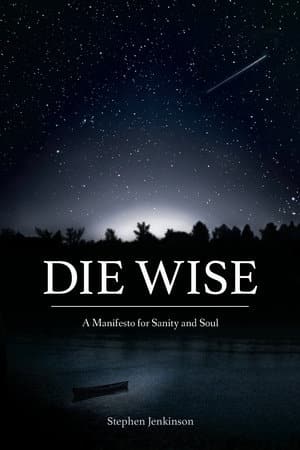
My favorite contribution to the overdue but growing conversation and body of literature about dying and death that we are so desperately in need of, in the Global North/ the West. This is what I call a “huggable book”—the kind of book you want to keep close by and frequently reread passages from, for comfort (other huggable nonfiction books for me include Emergent Strategy by adrienne maree brown; Between the World and Me by Ta-Nehisi Coates; and Tiny Beautiful Things by Cheryl Strayed, all of which you must absolutely read if you haven’t yet.)
For those of us who are no longer living on and in deep relationship with the same land where our ancestors are buried (i.e. non-indigenous), his terminology and assessment of us as “Orphans” is a compassionate gift, helping us understand so many of the fucked up things we have done in our desperate longing for home.
Finally, of course I have to pitch some of the babies I’ve helped birth!
If you’re interested in women’s work, specifically care work (tending the young and old and infirm), read The Age of Dignity by Ai-jen Poo, which provided the inspiration for some of the pending landmark legislation that will establish “Care Grid” infrastructure in the USA.
Check out We Keep Us Safe by Zach Norris for a vision of public safety that doesn’t rely on police and prisons, which only further divisions and increase fear, and instead is created through relationships and investments in community.
Read Decolonizing Wealth by Edgar Villanueva for an indigenous perspective on how philanthropy (and other money-hoarding and money-moving sectors like investment) perpetuates colonizing dynamics, and how instead we can use money to heal.
In February 2022 grab your copy of CITIZENS by Jon Alexander, for a whole reframe of humanity. We’re not greedy and apathetic; we’re helpful and collaborative; and when our institutions start treating us that way, we’ll be able to Fix the Future.
Ask Ariane anything
How to change the narrative? What role will we play in a future that is fair and sustainable for all? Come weave together a better story and join Ariane at Fixing the Future Festival ► Tickets out now.

